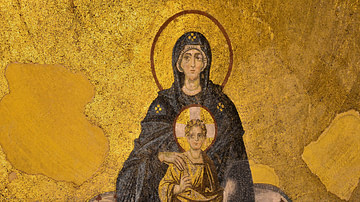In the depths of ancient scriptures, a troubling narrative unfolds for women. Their voices are muted, their stories overshadowed by patriarchal dominance. The New Testament, though hailed as a beacon of hope and salvation, paints a bleak picture for women seeking liberation.
Subjugation and Silence
Within the pages of this sacred text, women find themselves confined to roles defined by men. They are cast aside as mere vessels for procreation or objects of desire. Their thoughts and opinions hold no weight in matters of faith or decision-making.
Take Mary Magdalene, for instance – her identity reduced to that of a repentant sinner rather than an influential disciple who witnessed Jesus’ resurrection firsthand. Her voice silenced amidst the chorus of male apostles who took center stage.
Burdensome Expectations
Women in the New Testament bear heavy burdens imposed upon them by societal norms and religious customs. They are expected to be submissive wives and obedient daughters, stripped away from any agency over their own lives.
The story of Martha serves as a stark reminder – she is burdened with domestic responsibilities while her brother Lazarus sits at Jesus’ feet learning wisdom. Her worth measured solely by her ability to serve rather than engage intellectually or spiritually.
An Unsettling Legacy
This legacy continues to haunt generations after generations; its echoes reverberate through time into modern society where gender inequality persists within religious institutions worldwide.
A Call for Change
We must confront these troubled narratives head-on if we seek progress towards equality and justice for all genders within our communities today. By challenging traditional interpretations and amplifying marginalized voices within scripture, we can pave the way for a more inclusive and empowering future.
